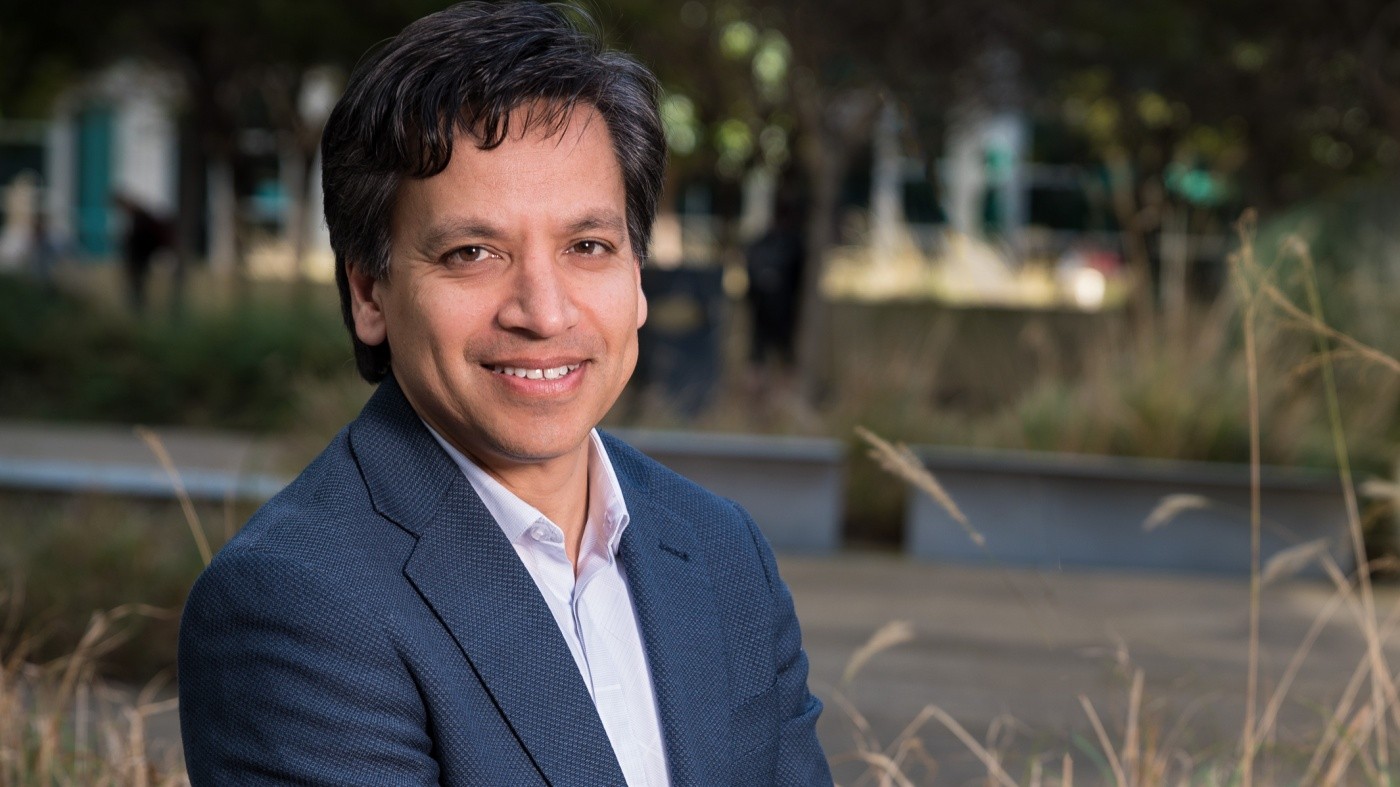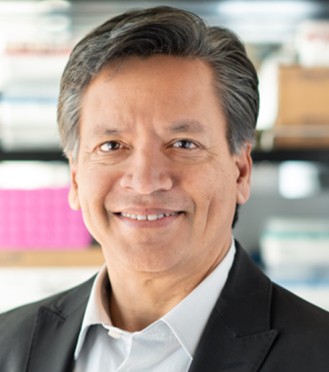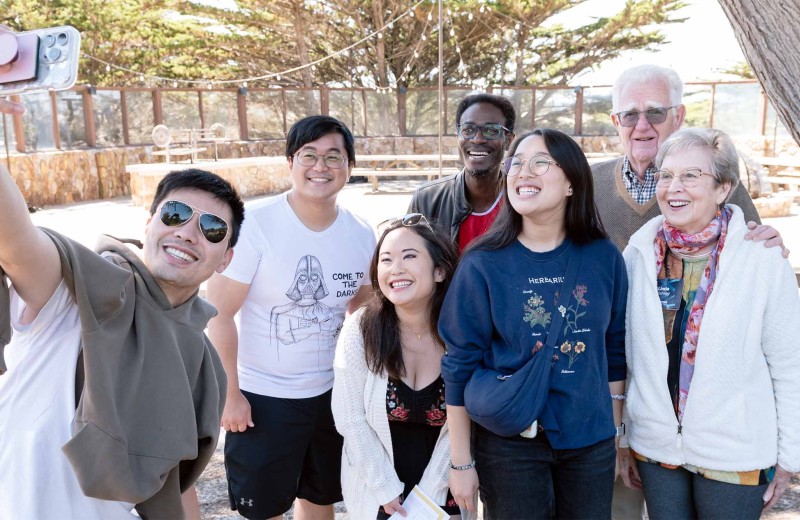Gladstone NOW: The Campaign Join Us on the Journey✕

Gladstone’s new president, Deepak Srivastava, discusses his new role.
Deepak Srivastava, MD, became the third president of the Gladstone Institutes on January 1, 2018. He answered five questions to share his state of mind as he transitions into this new role.
1. Why did you decide to take on this new role?
The main reason I’m excited to be the new president of Gladstone is my deep love for this organization. I don’t know that I would be willing to invest my time and energy in this role for any other institution.
In addition, Gladstone’s mission is perfectly aligned with my own, which is to make great discoveries that could affect mankind, while mentoring bright young researchers to whom we’ll eventually pass the torch. I also value our culture and admire how colleagues deeply respect and care for one another, and are genuinely enthusiastic about each other’s successes.
More broadly speaking, we are entering a golden era for science and medicine thanks to a combination of new approaches and technologies. We can now understand—and fight—human disease in ways we never could before. This is a very exciting time to be leading an institution that focuses on basic science with a purpose. With our home in an innovation hub like San Francisco, with industry and academic partners (such as our neighbor UC San Francisco), and the exceptional caliber of our scientists, we are ideally suited to lead this transformation.
In my opinion, very few places in the country have the level of science, the culture, and the scientific, administrative, and financial resources required to have a greater impact in the areas in which we choose to focus than Gladstone. That’s why I'm doing this.
2. What skills make a good leader?
I think the three most important skills a good leader in any field should have are: 1) the ability and willingness to serve; 2) the ability to engender trust; and 3) the ability to inspire. More specifically, for scientific fields, good scientific “taste” and judgment are critical elements.
If you are equipped with these capabilities and can demonstrate your passion in what you’re trying to achieve, you can successfully lead a team to accomplish impressive goals. I’ve strived to embody these traits throughout my professional career.
3. What are your main goals as president?
I believe the first thing to do when taking on a new role is recognizing—and preserving—the key elements that have contributed to previous successes. At the same time, one should constantly explore ways to improve and try to see the future, before it becomes obvious, and lead the organization toward that future.
One secret to our success has been making good decisions about our areas of focus. And, in those areas to which we commit, we assemble the best scientists in the world, give them sufficient resources to take chances and conduct the hard experiments, create the best infrastructure to support their research, and explore creative models to help discoveries get one step closer to improving human lives.
We’re also very lucky to have administrative employees who play such a critical role in accelerating science and share the same mission as our scientists. That’s rare. I look forward to working with them as full partners in achieving that mission.
Given our relatively small size, it is vital that we keep pointing our efforts in the most fruitful directions and take bold approaches. The same amount of energy is required to address any scientific question, so we need to invest our resources in pursuing the questions that can be most impactful. These choices are very important and shape the basis of what we do at Gladstone. Steering the organization in this process over the next many years will be one of my most important roles as president.
I want everyone at Gladstone to feel like they’re working with like-minded people, all pulling in the same direction toward a common vision. To me, this isn’t just a job. It’s so much more than that. I want to nurture our special culture and make sure we preserve it as we undergo future growth.
4. What are the challenges and opportunities that await Gladstone?
One of our challenges will be to maintain our strong financial position, which enables us to take risks and conduct truly creative and innovative science. With sufficient resources, we can create an environment where researchers have the freedom to fail and learn from their adventures. That’s how I believe the most disruptive discoveries are born.
Fortunately, our trustees have been outstanding fiduciaries and have fostered this concept. We’re also supported by a wonderful community of foundation board members, donors, and partners, who are all eager to help us and join in our quest to overcome disease.
With our science maturing in several areas, another challenge will lie in facilitating the translation of our discoveries toward therapeutics. This is an important part of our mandate, but as we work on advancing potential new treatments, we must be vigilant that our efforts don’t compromise our culture and our focus on basic research.
Being located in the San Francisco Bay Area provides us with a great opportunity to develop partnerships with industry and academic institutions and create a broader pipeline for translation, while remaining true to our mission and continuing to be a discovery-based research center.
5. In your opinion, how is Gladstone unique?
A number of peer institutions do very high-quality science, like us. But the combination of Gladstone’s high-quality research, the focus on human diseases, and the entrepreneurial model is very unique. This allows us to remain agile, quickly moving from discovery to translation and adapting to stay at the forefront of our fields. I don’t know any other place like it in the country.
We’ve also been able to contribute to science in a remarkable way. If you think about the areas in which we’ve invested, the impact we’ve had with a limited number of laboratories is astonishing.
And why is that? I sincerely believe it’s due to our strategy of having teams of scientists tackling a common problem, as well as cross-disciplinary groups that intersect with the different research areas, providing skill sets and thought processes that can be leveraged more universally. Combined with outstanding administrative infrastructure, it’s an unparalleled recipe for success.
Featured Experts
Want to Join the Team?
Our people are our most important asset. We offer a wide array of career opportunities both in our administrative offices and in our labs.
Explore CareersFrom Mentorship to Legacy: Creating Opportunity for Early Career Scientists
From Mentorship to Legacy: Creating Opportunity for Early Career Scientists
Robert and Linda Mahley’s commitment to trainee development continues through Gladstone’s annual Career Advancement Awards.
Graduate Students and Postdocs HistoryGladstone Mourns the Loss of Founding Trustee Richard D. Jones
Gladstone Mourns the Loss of Founding Trustee Richard D. Jones
Jones lent Gladstone his time and expertise for nearly 50 years.
History Institutional NewsRemembering Bill Rutter, a Biotech Visionary and Champion of Gladstone
Remembering Bill Rutter, a Biotech Visionary and Champion of Gladstone
William J. Rutter, PhD, was a pioneering force in biomedicine whose vision shaped San Francisco’s Mission Bay neighborhood into a hub for innovation and discovery.
History Profile




